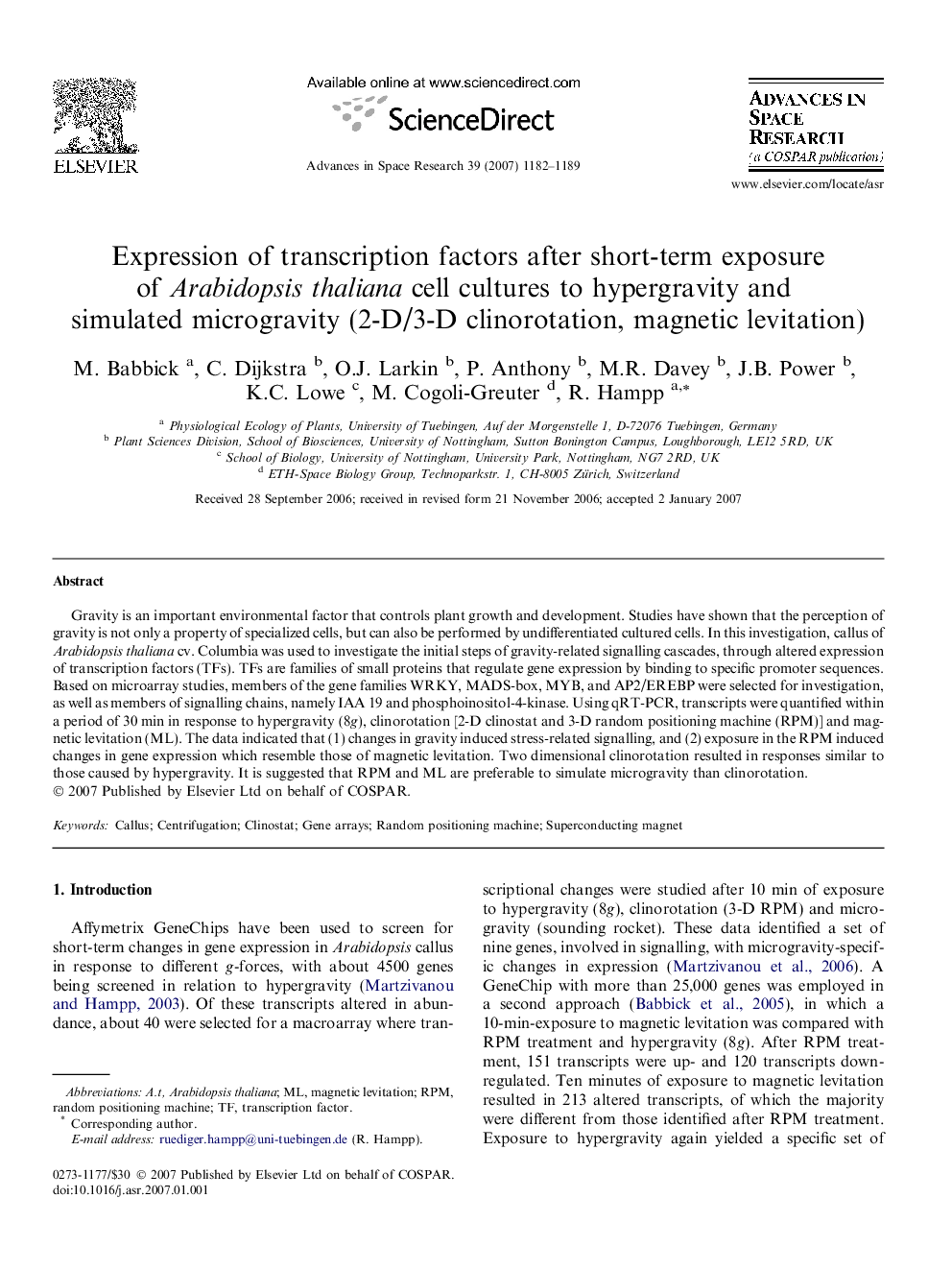| Article ID | Journal | Published Year | Pages | File Type |
|---|---|---|---|---|
| 1768949 | Advances in Space Research | 2007 | 8 Pages |
Gravity is an important environmental factor that controls plant growth and development. Studies have shown that the perception of gravity is not only a property of specialized cells, but can also be performed by undifferentiated cultured cells. In this investigation, callus of Arabidopsis thaliana cv. Columbia was used to investigate the initial steps of gravity-related signalling cascades, through altered expression of transcription factors (TFs). TFs are families of small proteins that regulate gene expression by binding to specific promoter sequences. Based on microarray studies, members of the gene families WRKY, MADS-box, MYB, and AP2/EREBP were selected for investigation, as well as members of signalling chains, namely IAA 19 and phosphoinositol-4-kinase. Using qRT-PCR, transcripts were quantified within a period of 30 min in response to hypergravity (8g), clinorotation [2-D clinostat and 3-D random positioning machine (RPM)] and magnetic levitation (ML). The data indicated that (1) changes in gravity induced stress-related signalling, and (2) exposure in the RPM induced changes in gene expression which resemble those of magnetic levitation. Two dimensional clinorotation resulted in responses similar to those caused by hypergravity. It is suggested that RPM and ML are preferable to simulate microgravity than clinorotation.
